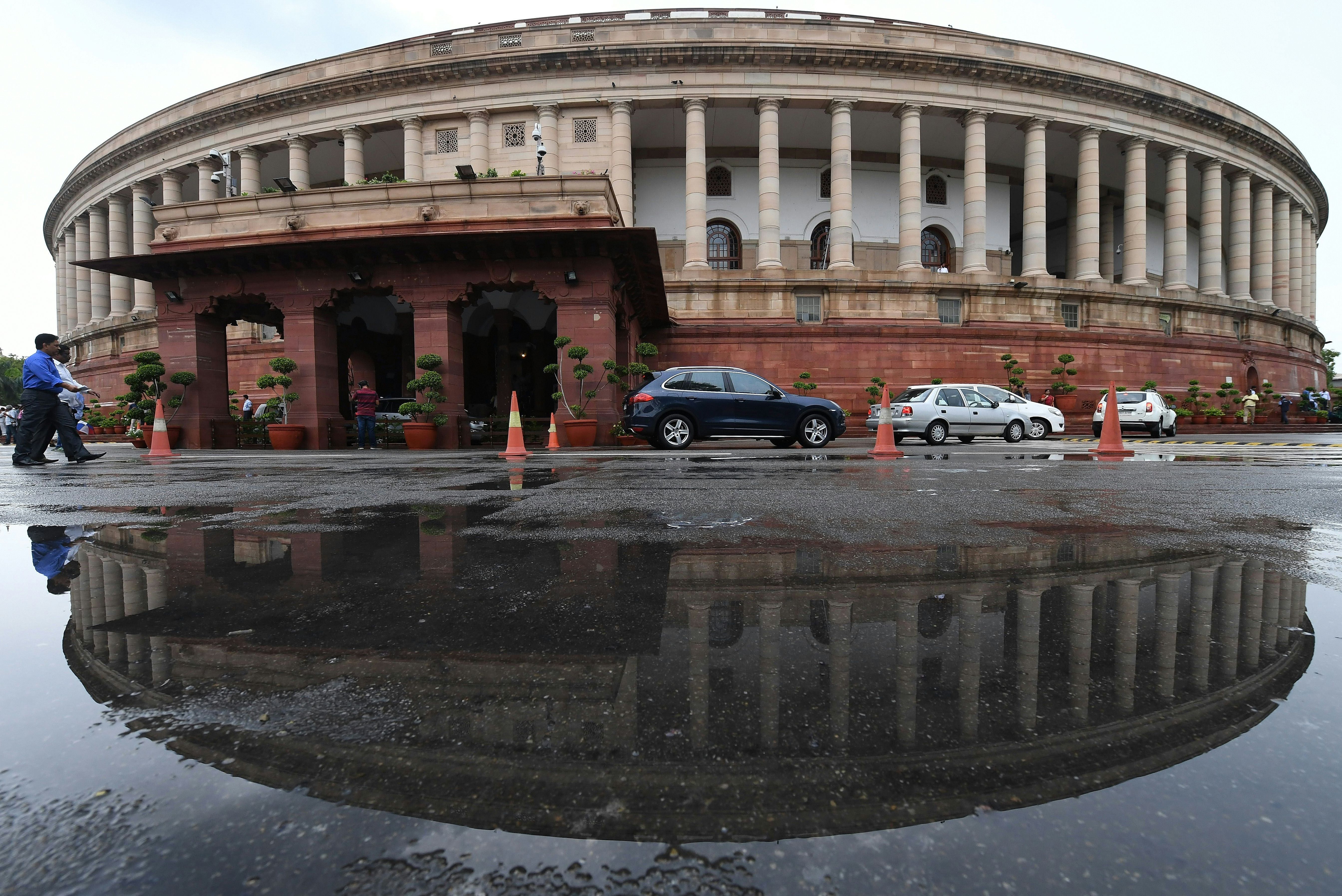The bizarre set of ordinary words now banned from India’s parliament
Several words used to attack the government have been banned, alongside strange additions like ‘bobcut’

Your support helps us to tell the story
From reproductive rights to climate change to Big Tech, The Independent is on the ground when the story is developing. Whether it's investigating the financials of Elon Musk's pro-Trump PAC or producing our latest documentary, 'The A Word', which shines a light on the American women fighting for reproductive rights, we know how important it is to parse out the facts from the messaging.
At such a critical moment in US history, we need reporters on the ground. Your donation allows us to keep sending journalists to speak to both sides of the story.
The Independent is trusted by Americans across the entire political spectrum. And unlike many other quality news outlets, we choose not to lock Americans out of our reporting and analysis with paywalls. We believe quality journalism should be available to everyone, paid for by those who can afford it.
Your support makes all the difference.India’s parliament has banned a list of 40 common words, many of which are used in the country’s political vocabulary and are also frequently used to attack prime minister Narendra Modi’s government.
The list of words has everyday inclusions like “ashamed”, “abused”, “anarchist”, “corrupt”, “criminal”, “hooliganism”, “drama”, “eyewash”, “lie”, “untrue” and “incompetent”.
Some of the other words that have made the banned list include “untrue”, “bobcut”, “lollypop”, “bloodshed”, “abused”, “childishness”, “disgrace”, “donkey”, “coward”, “fudge” and even “sexual harassment”, reported news agency Press Trust of India.
They will now be dubbed “unparliamentary” words and expressions that – if used by the lawmakers of the upper and lower houses – will invite action against them.
Some words, like “hooliganism”, “hypocrisy” and “incompetent”, are often used to describe the Indian government and the nature of political parties across the political spectrum.
The list also includes several Hindi language words and phrases that are explicitly used to hit out at the Modi government’s officials and policies.
These include “danga” (riots), “behri sarkar” (deaf administration), “kala bazaari” (black marketing), “girgit” (chameleon), “dalaal” – a word that means “broker” and that is derogatorily used to describe a person who supports Mr Modi and the BJP – and “chamcha”(a servile person) and “chelas”(followers).
One specific phrase, “ghadiyali ansu” (crocodile tears), has been used to attack Mr Modi himself after he broke down during a national address to talk about his administration’s widely criticised handling of the second wave of the Covid pandemic.
Other phrases used particularly against the Modi administration by opposition parties and leaders were included as well.
These are “jumlajeevi”(someone who propagates false promises) and “baal buddhi” (having the brain of a child).
“Covid spreader” and “Snoopgate” have also been ruled out as well.
The latter term had emerged after the Modi administration was accused of carrying out surveillance on political leaders, opposition members, journalists and activists using Pegasus spyware.
As a result of this move, the words and phrases will be expunged from parliament records and not be recorded for future purposes.
Top parliamentary officials – the chairman of the upper house and the speaker of the lower house – will take the final call on expunging these words and expressions if used in the upcoming session, the PTI report added.
The amending of the list of “unparliamentary” words comes ahead of the parliament’s monsoon session – from 18 July till 12 August – which is the second of a total three sessions held annually.
MPs from the ruling, right-wing Bharatiya Janata Party (BJP) and several opposition parties are expected to debate a host of issues plaguing the country during the upcoming session.
Opposition leaders across India have lodged their protests and mocked the move, dubbing it a “gag order” on lawmakers and stating that they are words used to describe how Mr Modi’s party is “destroying India”.
Congress party leader Rahul Gandhi mocked the government on Thursday morning by defining the word “unparliamentary” as language used to “describe the PM’s handling of the government and [which] now are banned from being spoken”.
Mahua Moitra, an MP from the All India Trinamool Congress party, also slammed the move: “New list of unparliamentary words for LS & RS does not include Sanghi [a word used to describe an Indian right-winger]. Basically govt taken all words used by opposition to describe how BJP destroying India and banned them.”
Derek O’Brien, another opposition politician, said he will continue to use “all” the words.
“Session begins in a few days GAG ORDER ISSUED ON MPs,” Mr O’Brien tweeted.
“I will use all these words. Suspend me.”
Join our commenting forum
Join thought-provoking conversations, follow other Independent readers and see their replies
Comments